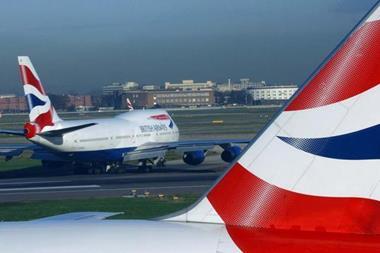Employers appear to be failing in their duty of care to staff who travel for work
Employers are currently spending an estimated £1bn on travel but some seem to be failing in their duty of care to employees who travel for work purposes, according to a recent survey.
A new study of corporate travel buyers shows that 50% of travellers do not undertake an internal formal company risk assessment each time they travel. In addition, 79% of respondents said they do not ask new travellers if they have read and understood a risk assessment.
David Leckie, commercial litigation and advocacy partner at Maclay Murray and Spens, commented: “Employers have a legal duty of care to look after the health and safety of their employees. They are at serious risk of civil liability and remote risk of criminal prosecution if they do not.”
Health & Safety and employment legislation has been around in the UK and Europe for many years but the progression of the Corporate Manslaughter and Corporate Homicide Act through parliament has focused attention on the employer’s legal obligation to their employees.
While the Act only applies to fatalities where the harm took place within the UK, it has raised awareness with respect to existing legislation and placed senior management under increased scrutiny in the event of a breach of the employer’s duty of care.
“Employers have a legal duty of care to look after the health and safety of their employees. They are at serious risk of civil liability and remote risk of criminal prosecution if they do not.
David Leckie, commercial litigation and advocacy partner at Maclay Murray and Spens
Leckie added: “Without question, stigma and reputational damage will be the new law’s biggest weapon. No organisation will want the opprobrium which will attach to a corporate manslaughter conviction.”
How serious an issue it is depends on where the employer is sending staff. Peter Jenkins, crisis risk manager at International SOS said that with more and more organisations sending people overseas for work employers need to get a handle on where their people are and have clear lines of communication in the event of an incident. His organisation evacuated more than 350 clients from Beirut during last year’s conflict.
“It is clearly important to do a risk assessment, particularly when sending staff to dangerous parts of the world which could leave employers exposed to liabilities,” said Leckie.
Paul Tilstone, executive director of the Institute of Travel Management—who conducted the travel buyer research—said that the undertaking of risk assessments for employees traveling to non-European destinations is set to rise by 150%, which suggests that corporations are starting to take the matter seriously.
This is not to play down the risk of domestic travel. In the aftermath of the London bombings, Jenkins said it took some organisations as long as two days to track down staff. According to Tilstone, 30% of business trips are still conducted in the UK.



















No comments yet